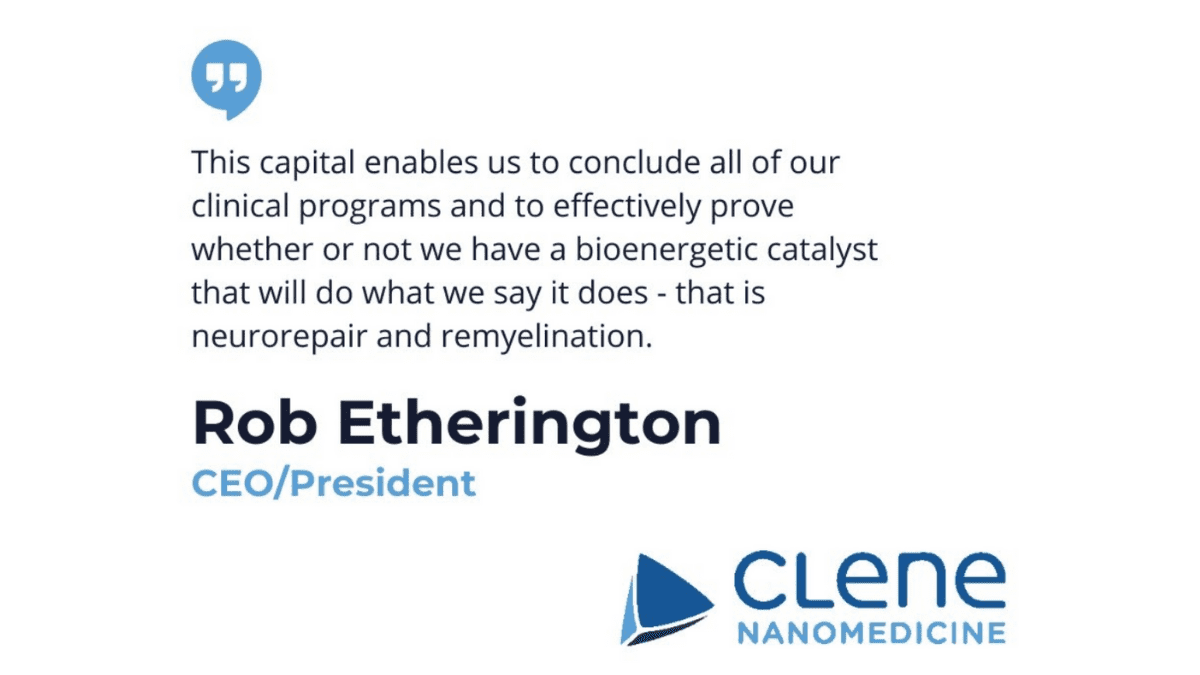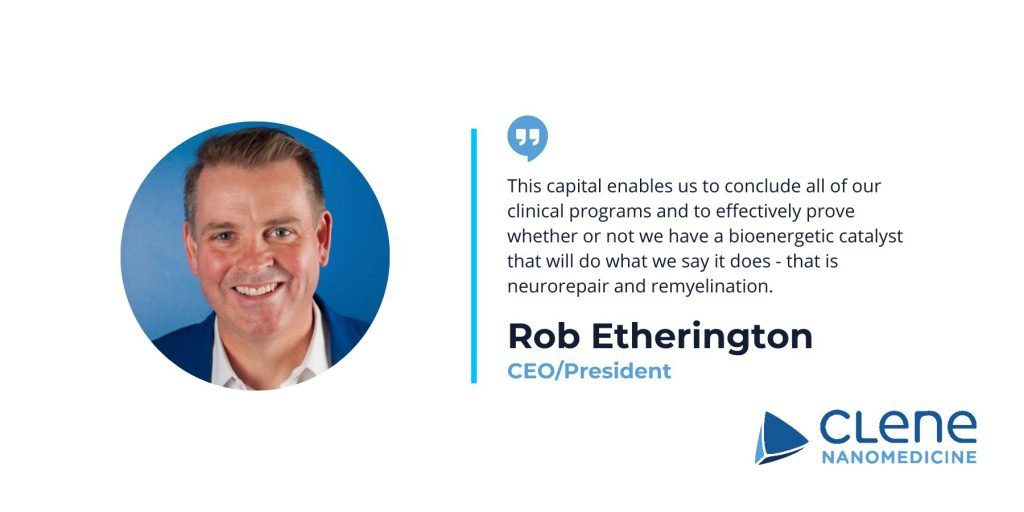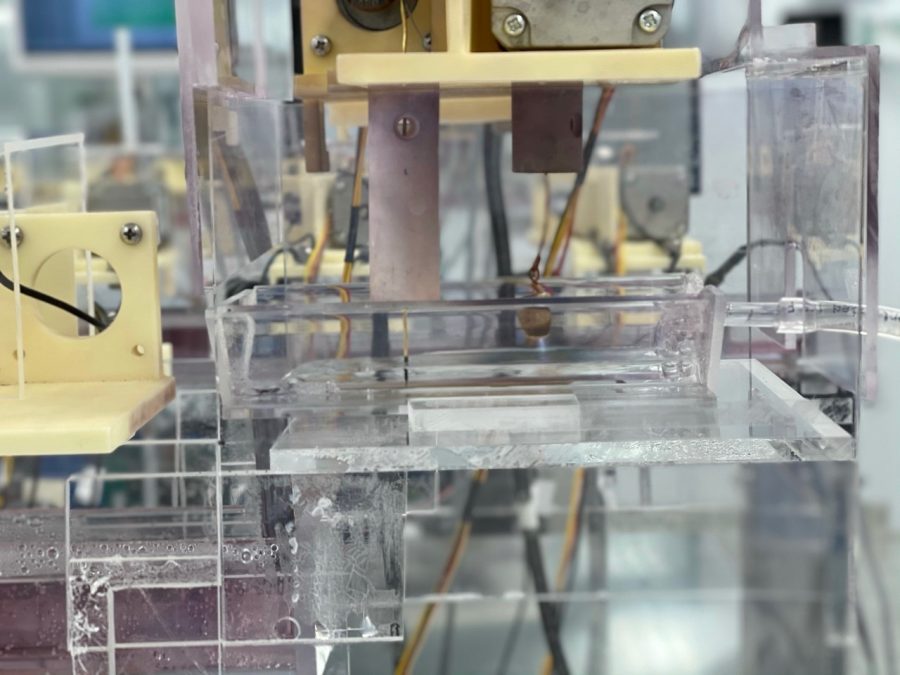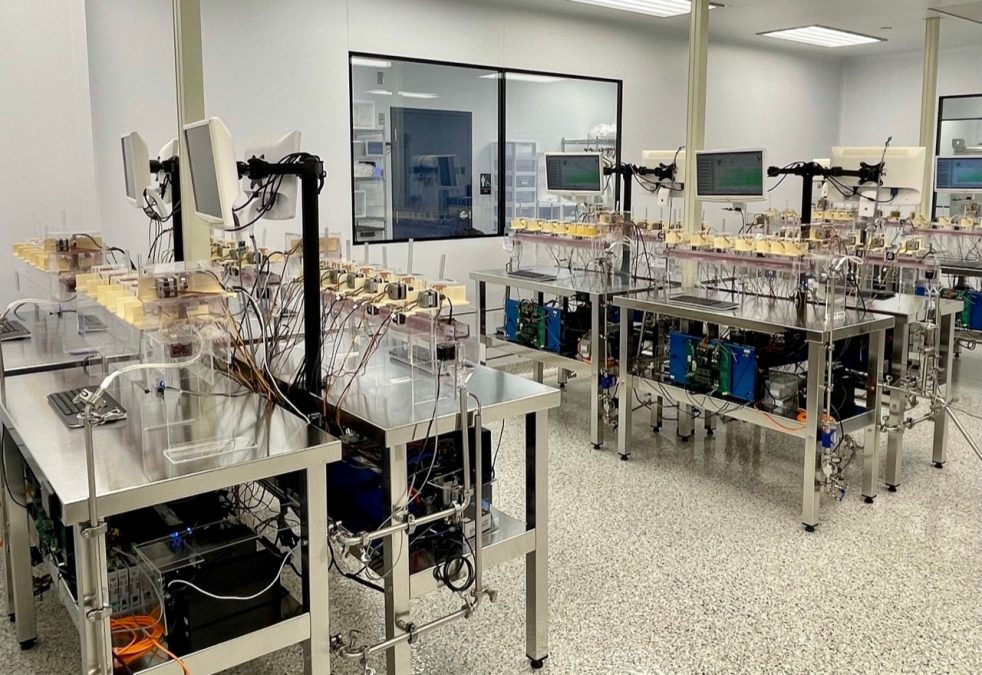
Clene Nanomedicine Aims to be the ‘Gold Standard’ in Neurodegenerative Disease
Clene Nanomedicine, one of Maryland’s Future 2020 companies, closed a merger with Tottenham Acquisition I Limited that provided the company with a slot on the Nasdaq Exchange and $31.9 million that will be used to advance the company’s gold nanocrystal-based treatment for neurodegenerative diseases.

Clene is developing a new class of drugs called bioenergetic nanotherapeutics that harnesses the properties of gold nanocrystals, which are used to amplify bioenergetic reactions in patients in order to drive intracellular biological reactions. Chief Executive Officer Rob Etherington said bioenergetic nanotherapeutics are a “clean break” from pharmaceutical drug development that uses classical synthetic chemistry.
Using gold as a therapeutic is not a new concept. Gold-salt injections were historically used to treat rheumatoid arthritis decades ago, but were dropped due to health concerns and toxicity issues.
Funds from the merger with Tottenham, a special purpose acquisition company (SPAC), will be used to advance Clene’s lead asset, CNM-Au8, a bioenergetic nanocatalyst under development as an add-on treatment for neurodegenerative diseases like Parkinson’s disease, multiple sclerosis and Amyotrophic Lateral Sclerosis (ALS). CNM-Au8 is designed to catalyze biocelluar reactions and so far the company has seen the asset live up to its promise in clinical studies.
Although Clene’s corporate offices are in Utah, the bulk of the company’s research is conducted in Cecil County, Maryland. Approximately three-fourths of the company’s employees are located in Maryland, Etherington said. The company conducts all R&D and manufacturing in Maryland, as well as its commercialization activities.
“Maryland has been a perfect anchor for Clene,” Etherington said.
While the company raised a significant amount of funds through the merger, Etherington said Maryland was one of the company’s earliest financial backers through a loan arrangement. He said predicted his company and the state will continue to have a strong relationship in the years ahead.
“The state has been a true supporter. It was also gratifying to be recognized as a Future 2020 company because we have built a home in Maryland,” he said.
Etherington predicted the next 18 months will be important for the company due to a planned readout of the company’s asset. The funds raised in the merger will be used to carry CNM-Au8 into Phase II and Phase III studies that aim to address neurodegenerative diseases of high unmet medical need, such as multiple sclerosis, Parkinson’s disease and amyotrophic lateral sclerosis (ALS). CNM-Au8 is currently being assessed in a Phase II study for the treatment of chronic optic neuropathy in patients with multiple sclerosis and is in Phase II and Phase III studies for disease progression in patients with ALS. Both Phase II studies are expected to read out this year. It’s also being studied in a Phase II Parkinson’s disease trial. The company reported interim data from the study last year and additional data is expected in the first half of 2021. Clene also plans to launch an additional Phase IIb Parkinson’s disease efficacy study with CN<-Au8 by the end of the year.
While CNM-Au8 is showing promise, it’s not designed to replace any medication currently being used by a patient for one of these diseases. Rather, it’s designed to work alongside those medications. Clene’s compound is designed to enhance the intracellular biological actions necessary to repair and reverse neuronal damage, Etherington said.


Clene’s gold nanocrystals are grown in treated water and patients drink the product when it is ready. By combining the nanocrystal therapy with ongoing treatments for these neurodegenerative diseases, Etherington said the goal is to reverse neurodegeneration.
“We want to let the cell take care of its own housekeeping and enhance what’s naturally occurring in the central nervous system,” he said.
In addition to the gold nanocrystal compound, Clene is developing a silver and zinc asset for COVID-19. CNM-AgZn17 is Clene’s second key asset intended for broad anti-viral and anti-microbial use. A Phase II study is planned in Brazil to treat acutely symptomatic non-hospitalized patients with COVID-19.





